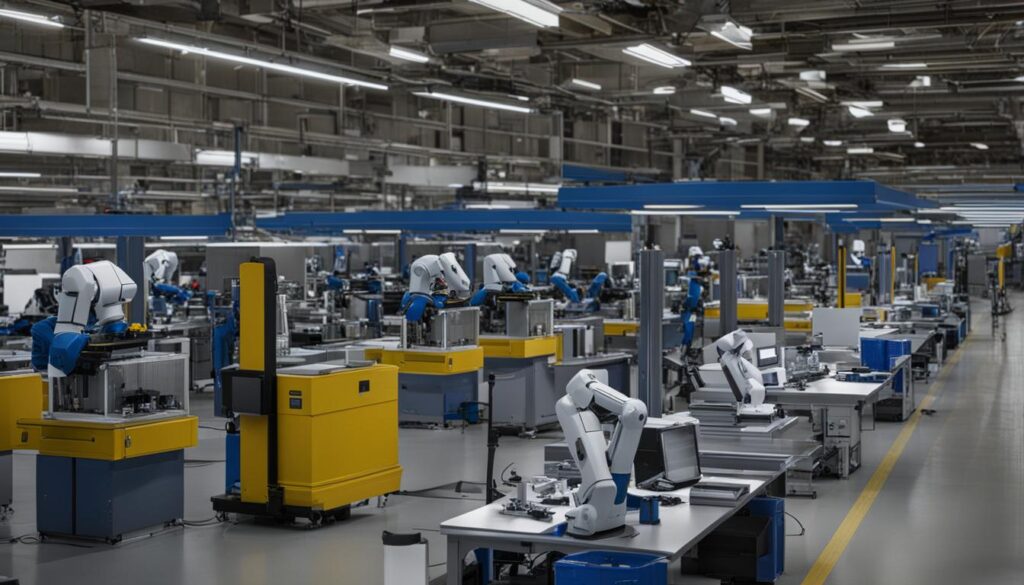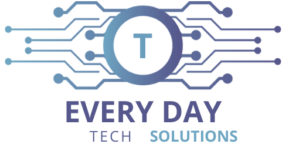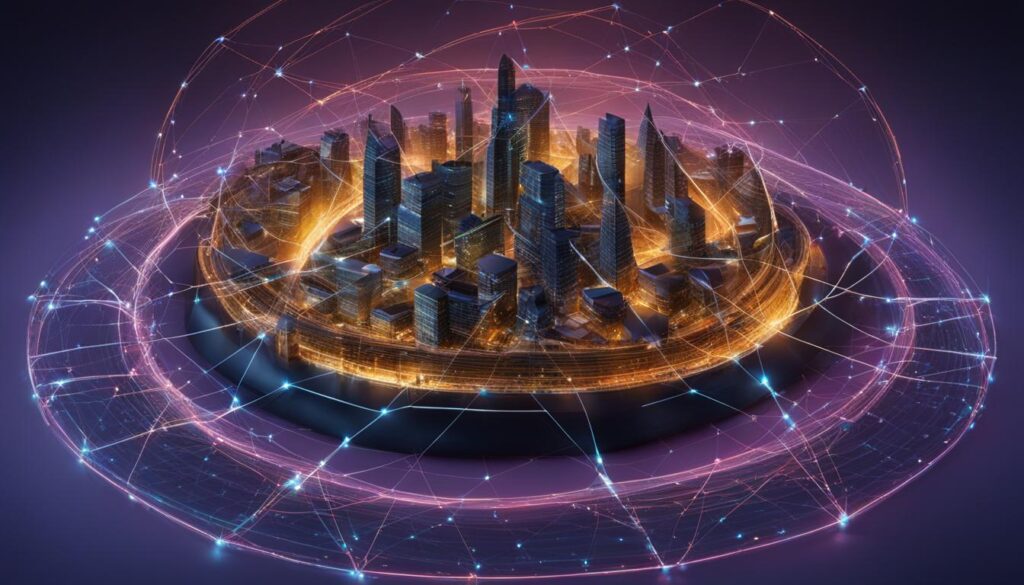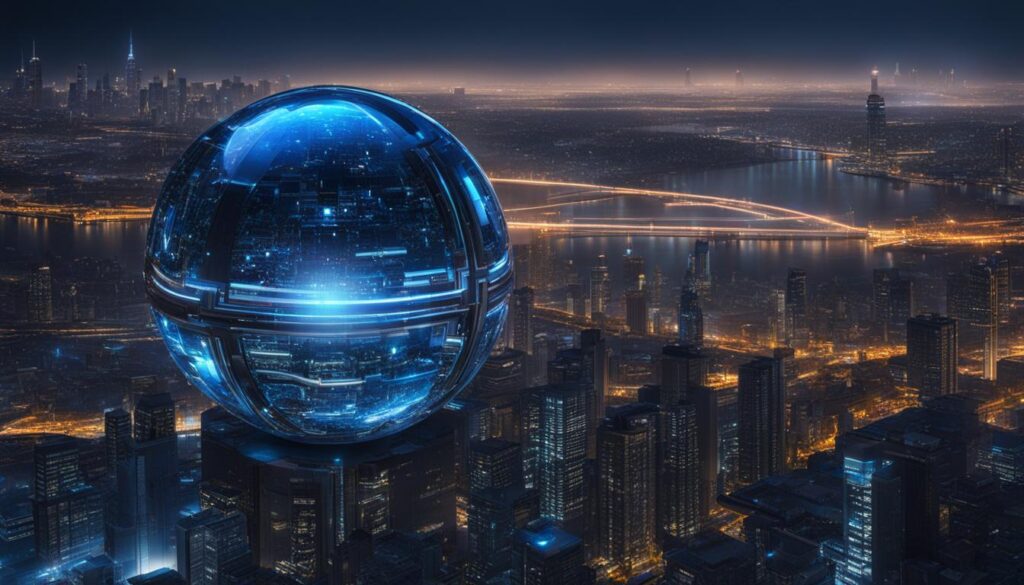Table of Contents
Artificial intelligence (AI) is a fascinating and rapidly evolving field that has the potential to greatly impact human lives. The interaction between AI and humans opens up a world of possibilities, but it also comes with its fair share of challenges and ethical considerations. As we look towards the future, it is important to explore the benefits, the role of humans in AI development, and the impact AI will have on our daily lives.
AI has the potential to revolutionize various sectors, from transportation to healthcare. It can amplify human effectiveness, saving time, money, and even lives. However, concerns arise about the potential inequalities and loss of privacy that may come along with it.
Despite the concerns, many experts remain hopeful that AI will enhance human capacities and empower individuals in the years to come.
Key Takeaways:
- AI has the power to greatly impact human lives and the way we interact with technology.
- The collaboration of AI and humans offers both benefits and challenges, raising important ethical considerations for the future.
- Experts predict that AI will amplify human effectiveness while also posing threats to human autonomy and agency.
- AI has the potential to revolutionize various sectors, such as transportation and healthcare.
- Despite concerns, many experts are hopeful that AI will enhance human capacities and empower people in the future.
The Transformative Potential of AI in Various Sectors
Artificial intelligence (AI) is set to revolutionize various sectors, offering transformative possibilities and advancements. Let’s explore the exciting ways AI is already making an impact:
AI in Transportation
From autonomous vehicles to smart traffic management systems, AI is reshaping the way we travel. Self-driving cars, buses, and even motorcycles powered by AI technology offer safer and more efficient transportation options. With AI’s ability to analyze vast amounts of data and make real-time decisions, traffic congestion can be minimized, optimizing commuting experiences.
AI in Education
The integration of AI in education is transforming the learning landscape. AI-powered platforms are assisting teachers in providing personalized education and identifying areas where students may need additional support. By analyzing student data, AI algorithms can adapt teaching methods and curricula to suit individual learning styles, ultimately enhancing the quality of education.
AI in Healthcare
The healthcare industry is experiencing a revolution with AI. From diagnostics to treatment plans, AI-powered systems are improving patient care. AI algorithms can analyze medical images, pathology samples, and patient data, aiding in more accurate and timely diagnoses. Additionally, AI is playing a role in drug discovery, precision medicine, and telemedicine, enabling better healthcare outcomes.
AI in Home Robots
AI-powered home robots are becoming increasingly intelligent and capable, offering assistance with various household tasks. These robots can perform cleaning, maintenance, and even provide companionship. With advancements in natural language processing, they can understand and respond to voice commands, making them valuable additions to modern homes.
AI in Policing
AI is transforming law enforcement by enhancing crime-fighting capabilities and enabling predictive crime prevention. AI algorithms can analyze vast amounts of data, identifying patterns and anomalies to aid in crime detection. With AI-powered systems, law enforcement agencies can allocate resources more effectively and respond to incidents in a timely manner, ultimately ensuring safer communities.
AI in Space Exploration
In the field of space exploration, AI is helping to improve efficiency and safety. AI algorithms assist in analyzing data from unmanned missions and optimizing the trajectory of spacecraft. By automating certain processes and providing real-time monitoring, AI contributes to the success of space exploration missions, pushing the boundaries of our understanding of the universe.
AI in Wars
While AI’s role in warfare raises ethical considerations, it is being utilized in various capacities. AI technologies are used for intelligence gathering, strategic decision-making, and even autonomous weapons systems. Regulations and careful oversight will be crucial to ensure responsible use and prevent unintended consequences.
| Sector | AI Applications |
|---|---|
| Transportation | Autonomous vehicles, smart traffic management |
| Education | Personalized learning platforms, adaptive curricula |
| Healthcare | Diagnostic assistance, precision medicine |
| Home Robots | Intelligent home assistance, companionship |
| Policing | Crime detection, predictive policing |
| Space Exploration | Data analysis, mission optimization |
| Wars | Intelligence gathering, autonomous weapons |
As AI continues to advance, its potential for transformation across sectors is undeniable. From improving transportation systems to revolutionizing education and healthcare, AI will shape the future of how we live, work, and interact with the world around us.
The Changing Landscape of Work and Education
As artificial intelligence (AI) continues to advance, it is reshaping the way we work and learn. The impact of AI on jobs is a hot topic of discussion, with concerns about AI replacing human workers. However, instead of fearing job loss, we should embrace the opportunity to rethink work and retrain the workforce for the digital age.
AI is not just a threat to blue-collar jobs; it also has the potential to disrupt white-collar professions. Routine tasks that are rule-based and repetitive can be easily automated, leading to the displacement of certain job roles. However, this shift presents an opportunity for us to focus on higher-level skills that require human creativity, critical thinking, and emotional intelligence.
In the field of education, AI is playing a transformative role in teaching and learning. Intelligent tutoring systems can provide personalized instruction and support to students, helping them learn at their own pace. AI can also optimize administrative tasks, freeing up educators’ time to focus on what matters most – guiding and mentoring students. By leveraging AI in education, we can create a more efficient and effective learning environment.
“The key is to view AI as a tool that can augment human capabilities rather than replace them entirely. By working in harmony with AI, we can unlock new opportunities and find innovative ways to solve complex problems.”
The Impact on White-Collar and Blue-Collar Jobs
The impact of AI on jobs is not limited to a specific sector; it affects both white-collar and blue-collar jobs. While some jobs may be at risk of automation, new roles will emerge that require a combination of technical skills and human expertise. The key is to adapt and continuously upskill to stay relevant in a rapidly changing job market.
AI has the potential to optimize work processes, making them more efficient and productive. By automating repetitive tasks, workers can focus on higher-value activities that require human judgment and creativity. For example, in healthcare, AI can assist doctors in diagnosing diseases, allowing them to spend more time interacting with patients and providing personalized care.
| AI in the Workplace | Impact on Jobs |
|---|---|
| Automated Data Analysis | Reduces the need for manual data processing roles |
| Virtual Assistants | Can handle administrative tasks, freeing up time for workers |
| AI-Powered Customer Service | May replace some customer service roles, but also create new ones |
| Robotics and Automation | May replace certain manual labor jobs, but also create new roles in maintenance and operation |
It is crucial to prioritize reskilling and upskilling initiatives to equip workers with the necessary skills to thrive in the AI era. Lifelong learning should be emphasized, enabling workers to adapt to changing technology and remain competitive in the job market.

AI’s Impact on Healthcare and Daily Life
As AI continues to advance, its impact on healthcare is nothing short of revolutionary. AI is transforming the way we approach healthcare, from diagnosis to treatment and everything in between. With its ability to analyze vast amounts of data, AI is revolutionizing diagnostics, providing more accurate and timely results. This not only saves lives but also reduces the burden on healthcare professionals.
Precision medicine is another area where AI shines. By leveraging AI algorithms, healthcare providers are able to tailor treatments to individual patients based on their specific medical history, family history, and even DNA sequencing. This personalized approach not only improves patient outcomes but also helps reduce healthcare costs by eliminating unnecessary treatments.
AI is not just limited to healthcare. It’s also making waves in transportation, entertainment, and virtual reality. In transportation, AI is revolutionizing the way we travel, with autonomous vehicles becoming increasingly common. This not only improves safety on the roads but also provides a more convenient and efficient mode of transportation.
Entertainment is also being transformed by AI. From personalized recommendations on streaming platforms to immersive virtual reality experiences, AI is changing the way we consume entertainment. With AI-powered algorithms, we can now enjoy tailored content that caters to our specific interests and preferences.
FAQ
What will AI do to humans?
Artificial intelligence (AI) has the power to greatly impact human lives and the way we interact with technology. It offers both benefits and challenges, raising important ethical considerations for the future.
How will AI transform various sectors?
AI is already making an impact in transportation with autonomous vehicles, and it is predicted to revolutionize education, healthcare, home robots, policing, space exploration, and entertainment.
How will AI affect the workforce?
AI and automation are predicted to replace many blue-collar and routine white-collar jobs, while also assisting or replacing tasks in professional jobs. This shift will require retraining and finding new opportunities in the merging of AI and human capabilities.
What is AI’s impact on healthcare and daily life?
AI is revolutionizing the healthcare industry by improving diagnosis, treatment, monitoring, and long-term care. It is also transforming transportation, entertainment, and virtual reality experiences.
Source Links
- https://kaifulee.medium.com/how-ai-will-completely-change-the-way-we-live-in-the-next-20-years-e27a855b1bd0
- https://www.pewresearch.org/internet/2018/12/10/artificial-intelligence-and-the-future-of-humans/
- https://www.forbes.com/sites/naveenjoshi/2022/08/02/7-ways-ai-will-affect-humans-in-our-future/?sh=266cd08e5db0




